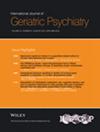Association between depression and incident dementia: Longitudinal findings from the share study
Abstract
Background
The association between depression and dementia is still unclear, particularly regarding depression as a potential risk factor preceding dementia. Therefore, we aimed to verify if the presence of depression at baseline may increase the risk of dementia and cognitive impairment during 15 years of follow-up in the SHARE (Survey of Health, Aging and Retirement in Europe) study.
Methods
Depressive symptoms were defined using the EURO-D, with a score ≥4 indicative of depression. Incident dementia was ascertained using self-reported data and caregivers' information, cognitive impairment using objective cognitive tests. Cox regression analysis, adjusted for 10 baseline confounders, was run and hazard ratios (HRs), with their 95% confidence intervals, were estimated.
Results
In total 22,789 participants were included in the present analysis (mean age 64.2 years) and were predominantly female. The prevalence of depression at baseline was 24.9%. Over 15 years of follow-up, the onset of dementia occurred a median 2 years earlier in people with depression compared to those without. Depression at the baseline significantly increased the risk of dementia in the overall sample (HR = 1.74; 95% CI: 1.54–1.95) and the risk of cognitive impairment (HR = 1.15; 95% CI: 1.06–1.25). For dementia, the association was stronger in people less than 60 years (HR = 2.07; 95% CI: 1.42–3.02) than in participants aged ≥80 years (HR = 1.47; 95% CI: 1.14–1.91). A similar trend was observed for cognitive impairment. Among the single items of the EURO-D, loss of concentration was the strongest individual variable predicting the onset of dementia.
Conclusions
Depression increased the risk of dementia and cognitive impairment, particularly in younger adults, whereas loss of concentration was the strongest individual predicting variable of dementia. These findings demonstrate the need for early detection of depression for preventing future cognitive worsening.

 求助内容:
求助内容: 应助结果提醒方式:
应助结果提醒方式:


